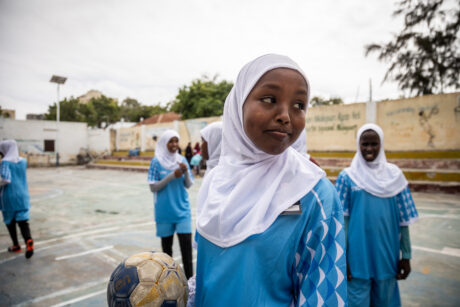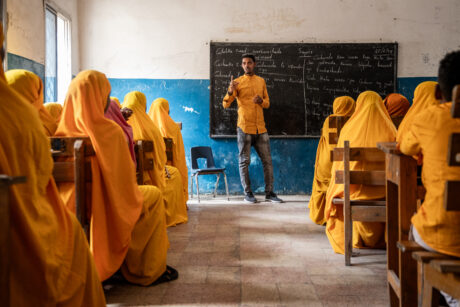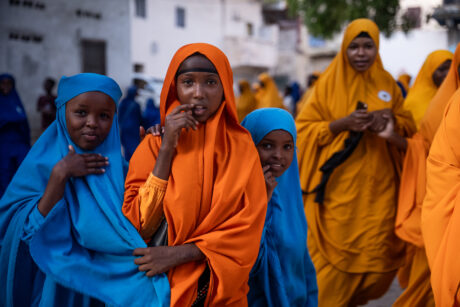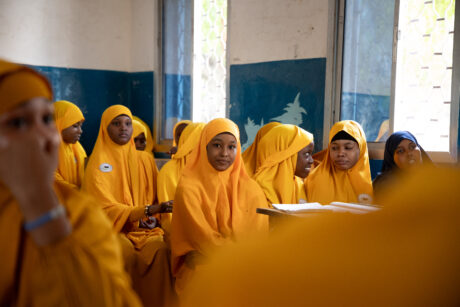Ali Mohamed has been an educator in Mogadishu since 1975. He has seen decades of conflict, schools destroyed, and educators and students displaced. Despite the challenges, children come to his classroom each September looking to learn how to read the new books in their backpacks.
The USAID-funded Bar ama Baro program, meaning Teach or Learn in Somali, has been working with the Ministry of Education, Culture, and Higher Education to get more students in the classroom. Bar ama Baro provides accelerated basic education so students who dropped out of or never attended the formal school system can catch up on fundamental skills like literacy and numeracy.
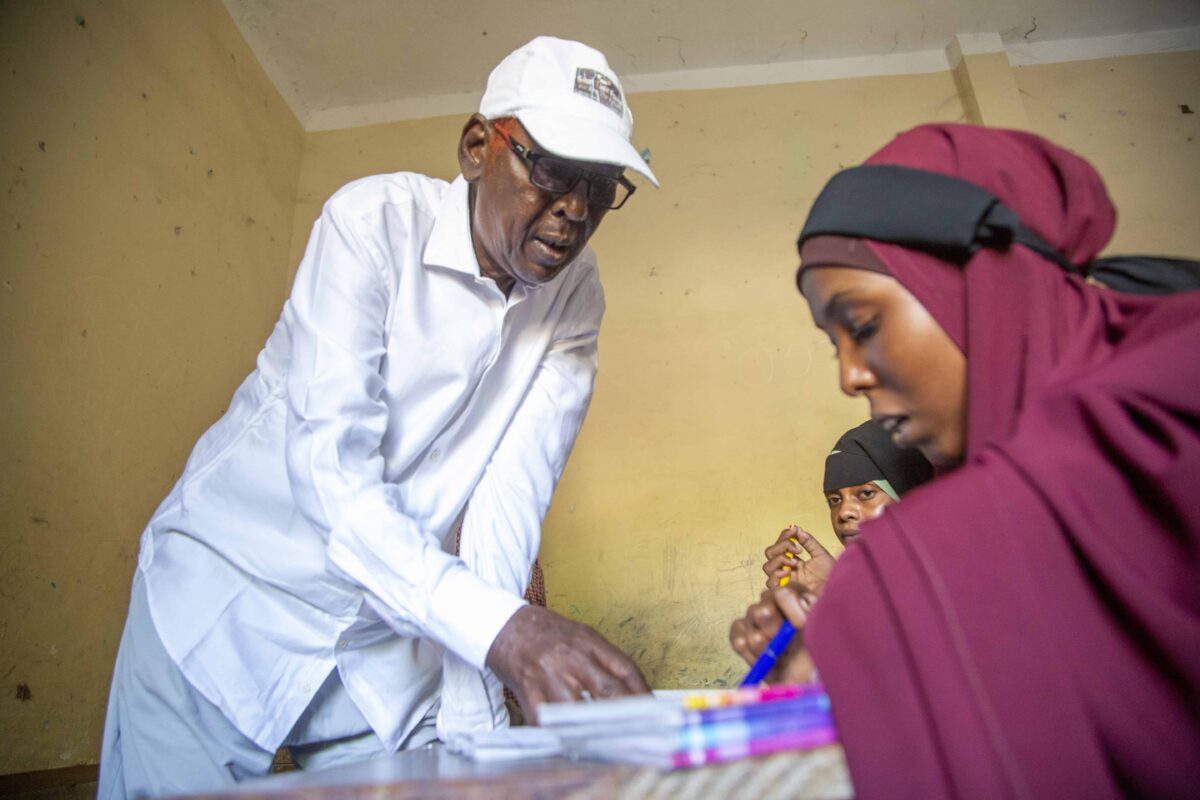
Sharpening literacy education skills
As headteacher of Mogadishu Primary and Secondary School, Mohamed is dedicated to the professional development of his teachers and to ensuring the school is doing everything it can to help students succeed. In 2021, the school began offering Bar Ama Baro’s accelerated basic education program (ABE) after its formal school day to support more children, recognizing the urgent need for alternative education pathways for children who are from marginalized communities and poor families.
Teachers at Bar ama Baro schools were trained on innovative literacy techniques, student-centric teaching methodologies, and adaptable strategies. Given that the accelerated education students are typically older than formal school students at the same grade level and have faced ongoing insecurity, like conflict and displacement, teachers need to be well prepared to tailor their approach to the diverse learning needs of their students.
“These newfound skills enabled us to cultivate positive student interactions, employ age-appropriate techniques, and foster a secure learning environment that amplifies our students’ learning outcomes,” says Mohamed.
Bringing reading in reach with a strong curriculum
Every component of USAID’s Bar ama Baro program was designed to effectively teach children at an accelerated pace so students can complete the eight-year primary cycle in just four years and then enter the formal school system. In its 4th implementation year, the program has enrolled over 100 thousand Accelerated Basic Education students in 444 schools, trained 2660 teachers and headteachers and distributed more than half a million teaching and learning materials.
To ensure that the ABE students have a thorough grounding in reading skills, the accelerated basic education curriculum in the first level (equivalent to grades 1-2) devotes a third of the teaching time to learning Somali.
The curriculum introduces letters and sounds based on their frequency and has taken a leveled approach to reading texts, building in the four skills of listening, speaking, reading, and writing. This approach utilizes the experience that the older accelerated education students bring with them, including an enhanced vocabulary, familiarity with cultural stories and songs, and the reading skills they may already have picked up from Quranic schools or at home.
The reading and writing skills not only build on each other throughout the levels in Somali but are also replicated across Arabic and English subjects. This strong foundation in reading and writing skills benefits all subjects in the curriculum.
“This curriculum’s impact will endure, benefiting numerous generations in our country,” says Mohamed.
Books and teacher guides that make reading fun
Another aspect of the program that proved to be a game changer is the newly developed textbooks and teacher guides. These resources have become indispensable assets for both educators and students.
Mohamed notes that these guides empower teachers to craft lesson plans that maximize student engagement. Textbooks also serve as avenues for students to practice both in the classroom and at home, effectively enhancing their literacy and numeracy skills. To further augment students’ numeracy abilities, the program introduced supplementary reading materials seamlessly integrated into the Accelerated Basic Education curriculum.
“The fusion of textbooks and engaging supplementary reading materials has yielded an astonishing transformation in our students’ literacy skills within a matter of months,” says Mohamed.
Somalia has one of the lowest school enrollment rates globally, with approximately 4.4 million children out of school. In collaboration with the Federal Ministry of Education, Culture, and Higher Education, as well as Federal Member States Ministries of Education, local communities, and committed educators like Mohamed, the Bar ama Baro program strives to elevate the literacy rate by providing quality education access to over 100 thousand out-of-school children and youth across 31 districts in the Hirshabelle, Southwest, Jubaland States, and Banadir Region.
